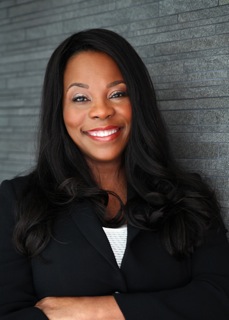Diversity: Healthcare leader Myrtle Potter's "Aha Moment"
Posted on Thu, 05/17/2012 - 18:57 Today we are joined by Myrtle Potter, one of America's foremost healthcare leaders and former president of Genentech, for a third installment in our series on the subject of diversity, featuring the personal “aha” moments of deans of admission, educators, and public figures.
Today we are joined by Myrtle Potter, one of America's foremost healthcare leaders and former president of Genentech, for a third installment in our series on the subject of diversity, featuring the personal “aha” moments of deans of admission, educators, and public figures.
In the wake of the Supreme Court’s agreement to hear a case challenging the University of Texas’ admission policy, we wanted to examine the role diversity plays in college admission. Why do colleges value diversity? Is it a worthwhile goal? What are its implications – pro and con? It is a subject that is complex, sometimes divisive, and often not well understood by students and parents.
Myrtle Potter, with her considerable experience in the world of corporate strategy, product development, and consulting, continues the discussion here:
My “aha” diversity moment may have begun in college but the lesson I was to learn didn't fully develop until years later.
I grew up in a small town in southern New Mexico. My friends and I still refer to our wonderful upbringing as a “bubble existence." We attended an incredibly diverse high school -- all races, religious backgrounds, sexual orientations and levels of income. Yet, there was no divide that separated us. The lines between lunch tables, friendships and opportunities were a colorful blur of acceptance.
When I went off to college I innocently expected the same co-mingling of students. In the classroom I had stimulating academic exchanges with most every classmate. But when I stepped outside my classrooms it was often a very different experience. The same students with whom I had just had a thoughtful exchange of ideas seemed to not recognize me when I met them on campus. It was confusing. I didn’t believe it was racism, as I was included and accepted in most every academic discussion. So, what, exactly, was causing this disconnect?
Then, during one of my early jobs out of college, the answer came to me. I was working in management at Merck and in my first year on the job there was a major labor strike. The folks who usually dressed in suits and carried snappy briefcases were now donning sterile uniforms and hairnets because we needed to work the manufacturing line to assure that Merck could supply medicines to our patients.
Normally the company cafeteria was an all-inclusive place where management and line workers both ate lunch, seemingly together. Yet, the first day of the strike I walked into the cafeteria looking for my “suits” to sit with and they were nowhere to be found. All I saw was a sea of line-worker uniforms and I immediately thought, “I have no one to sit with” even though I too was in the sterile uniform and hairnet. That’s when it dawned on me: this is what was happening to me on my college campus.
I knew all the workers at Merck were valued and important, but when it came to who I looked to sit with at lunch I looked for people like me -- another “suit." I was not so different from my college classmates who had unconsciously looked past me because they focused on people just like them outside of our classroom.
As I look back on my 30-plus years as a business leader in the healthcare industry I can honestly say that establishing workplace diversity as a business imperative is one of the keys to the success of great companies. Diversity as a business imperative makes us listen better to our customers, understand more of their needs and work harder to satisfy them. Everyday I also witness first-hand the ease with which employees who thrive in a diverse environment solve complex problems and create fresh, ground-breaking business ideas.
I continue to experience “aha” moments when I catch myself getting wrapped up in some preconceived notion. But, I always hearken back to my experience when I learned that none of us are free from our biases. We can all do better.
Myrtle Potter is one of America’s foremost healthcare leaders. In 2005, she foundedMyrtle Potter and Co., a life science and health care consulting company, where she serves as CEO. She was previously a vice president at Merck, president at Bristol-Myers Squibb, and president and chief operating officer of Genentech, the world’s most successful biotechnology company, committed to developing powerful therapies for cancer and autoimmune diseases.
Myrtle currently serves on the board of directors of Express Scripts, Inc., Everyday Health, Inc., and 3GBioTech, LLC and is also a trustee of the University of Chicago. Formerly, she served on the boards of Medco Health Solutions, Inc., Amazon.com, Inc. and FoxHollow Technology/Ev3. She has been featured in BusinessWeek, the Wall Street Journal, FORTUNE Magazine, TIME Magazine, Forbes, Black Enterprise Magazine and The Harvard Business Review. She has also been named to FORTUNE's Top 50 Most Powerful Women in Business, Black Health Magazine’s 25 Most Influential African Americans in Healthcare, Glamour Magazine’s Everyday Icon and the Wall Street Journal’s 50 Women to Watch.








Add comment